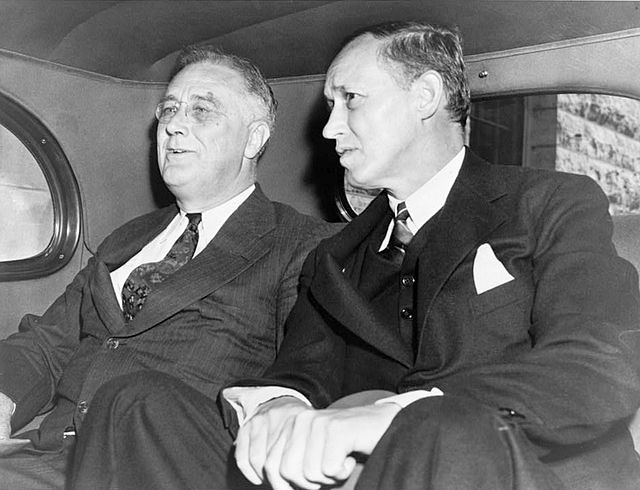Federal Project Number One
Federal Project Number One, also referred to as Federal One, is the collective name for a group of projects under the Works Progress Administration, a New Deal program in the United States. Of the $4.88 billion allocated by the Emergency Relief Appropriation Act of 1935, $27 million was approved for the employment of artists, musicians, actors and writers under the WPA's Federal Project Number One. In its prime, Federal Project Number One employed up to 40,000 writers, musicians, artists and actors because, as Secretary of Commerce Harry Hopkins put it, "Hell, they’ve got to eat, too". This project had two main principles: 1) that in time of need the artist, no less than the manual worker, is entitled to employment as an artist at the public expense and 2) that the arts, no less than business, agriculture, and labor, are and should be the immediate concern of the ideal commonwealth.
WPA Poster
An example of one of the Federal Writers' Project's books
Works Progress Administration
The Works Progress Administration was an American New Deal agency that employed millions of jobseekers to carry out public works projects, including the construction of public buildings and roads. It was set up on May 6, 1935, by presidential order, as a key part of the Second New Deal.
FDR prepares to speak about the establishment of the work relief program and Social Security at his fireside chat of April 28, 1935.
FERA administrator and WPA head Harry Hopkins speaking to reporters (November 1935)
WPA road development project
FDR and Hopkins (September 1938)






